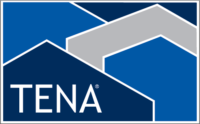Mortgage Servicing Quality Control
Notable Audit Findings: January – March 2017
Over 25,000 mortgage servicing Quality Control audit findings consisting of over 1,600 separate and unique audit exceptions were cited during the first quarter of 2017. That data pool was analyzed to identify emerging trends and common findings. The following five audit findings were identified as being notable.
- Audit Finding: The servicer did not review the property to determine if it was encumbered by a Property Assessed Clean Energy (PACE) obligation at the time of foreclosure referral.
The FHA Single Family Mortgagee Letter 2017-06 issued on January, 19 2017 had an effective date immediately. The mortgagee letter specifies:
The Mortgagee must:
– review each property at the time of foreclosure referral to determine if the Property is encumbered with a PACE obligation;
– confirm that any identified PACE obligation may only become subject to an enforceable claim (i.e., a lien) for delinquent regularly scheduled PACE special assessment payments and otherwise complies with the eligibility and acceptability criteria for Properties with PACE obligation provided in Section II.A.1.b.iv.(A)(6); and
– contact the HUD National Servicing Center for guidance in a noncompliant PACE obligation is identified.
TENA’s audit analysis revealed that a statistically significant number of findings were attributable to the loan servicer’s failure to fulfill this requirement.
TENA Recommendation: Analyze current processes and procedures to ensure your firm has a process in place to review each property prior to foreclosure referral to determine if the property is encumbered by a PACE obligation. Then establish procedures to clearly document in your system of record that the search was performed and the conclusion reached.
To review Mortgagee Letter 2017-06 guide click here.
- Audit Finding: The servicer did not appear to submit a quarterly report indicating the status of each borrower account as of 6:00PM CST/CDT of the Federal Government’s 6th working day following the end of the quarter.
The Rural Housing Service HB-1-3555 SFH Guaranteed Loan Program Technical Handbook in Chapter 17, Section 1, 17.3 Reporting Requirements indicates:
The servicer must transmit quarterly portfolio reports within six government workdays following the last day of the month of each quarter, which end March 31, June 30, September 30, and December 31. The servicer must transmit EDI Transaction set 203 or web-based documentation to the NFAOC reporting on the status of each guaranteed loan in the servicer’s portfolio.
The servicer must continue to report on each loan until:
– The mortgage is paid in full; or
– The account is liquidated through foreclosure sale, pre-foreclosure sale, or a deed-in-lieu of foreclosure until the servicer is in receipt of the loss claim payment.
Appendix 8 provides electronic reporting documentation.
TENA Recommendation: Review Rural Housing Service reporting processes in general, the frequency with which the reports are generated, and the business day they were reported. Ensure that your firm has the ability to record when and what is being included as part of your RHS reporting process.
To review the RHS HB-1-3555 SFH Guaranteed Loan Program Technical Handbook 17.3(C) guide click here.
- Audit Finding: Evidence was not found that the servicer sent the borrower a certified letter via mail which indicated the availability of a face-to-face interview and how to schedule one.
TENA’s first quarter 2017 audit findings revealed an increasing frequency of audit exceptions regarding the servicer providing evidence that the borrower was sent a certified letter via mail which indicated the availability of a face-to-face interview and how to schedule one, when applicable. FHA’s Single Family Housing Policy Handbook 4000.1 III.A.2.h(xii)(A)(2) states:
(2) Reasonable Effort in Arranging a Face-to-Face Interview
The Mortgagee must send to the Borrower via Certificate of Mailing or Certified Mail a letter providing information on:
– the availability of face-to-face interviews; and
– how to schedule the interview.
The Mortgagee must also attempt to contact the Borrower at the mortgaged Property to provide information on the availability of face-to-face interviews. The Mortgagee may use a third-party vendor to establish this contact with the Borrower and to schedule the Borrower’s face-to-face interview with a Mortgagee representative.
TENA Recommendation: Servicers should review policies and procedures for face-to-face meetings, the time tables regarding when such meetings are required, and the efforts used in arranging said meetings. Ensure your firm’s process is effectively documented and that details relating to said meetings can be verified within the loan servicing file.
To review if the guideline is applicable to your firm click: FHA SFHPH 4000.1 – III.A.2.h(xii)(A)(2).
- Audit Finding: The servicer established contact with the borrower; however, the reason for the borrower’s default was not determined and adequately documented during the collection process.
When a servicer first establishes contact with a delinquent borrower the reason for delinquency should be ascertained. Detection of the reason for delinquency is an important element in the early delinquency intervention process; it is vital to determining what course of action is needed to help the borrower. TENA has noticed in the first quarter, an increase in the number of cases that had inadequate documentation in the system of records regarding the borrower’s reason for default and/or the servicer’s attempts to obtain the reason for the default.
TENA Recommendation: Servicers should periodically review the process regarding initial interactions with borrowers that become delinquent to: a) ensure employees are trained on the importance of the initial contact and determining the nature/reason for the delinquency; b) the interaction is properly documented in the system notes; and c) that appropriate next steps are taken to help resolve the delinquency.
- Audit Finding: The escrowed property tax payments were not paid on time.
In the first quarter of 2017 TENA noticed an up-tick in tax payments not being paid on time for loans with tax escrows. The Real Estate Settlement Procedures Act (RESPA) states:
(k)Timely payments.
(1) If the terms of any federally related mortgage loan require the borrower to make payments to an escrow account, the servicer must pay the disbursements in a timely manner, that is, on or before the deadline to avoid a penalty, as long as the borrower’s payment is not more than 30 days overdue.
(2) The servicer must advance funds to make disbursement in a timely manner as long as the borrower’s payment is not more than 30 days overdue. Upon advancing funds to pay a disbursement, the servicer may seek repayment from the borrower for a deficiency pursuant to paragraph (f) of this section.
TENA Recommendation: Review the tax due date entered into the servicing system when the loan is initially on-boarded. For seasoned loans, a periodic reaffirmation of tax due dates will help ensure that future tax payments are made on a timely basis without penalties.
To review the entire RESPA section on escrow accounts and timely payments see RESPA 12 C.F.R. § 1024.17(k)(1).







